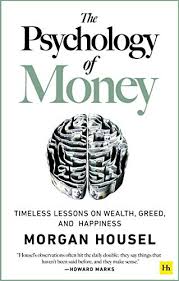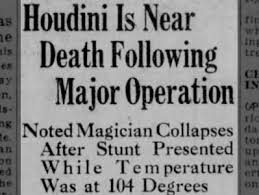In 2009, award-winning journalist Morgan Housel was awash in information about the 2008 financial collapse. Yet, try as he might, he could not find the answer to the question: “Why did people behave the way they did?” This is what led him to start formulating notes for what became a blog, and eventually a book titled The Psychology of Money: Timeless lessons on wealth, greed, and happiness (Harriman House, 2020). The book was launched on September 8.
“What is a person’s relationship with greed and fear? The psychological side of investing is the most important side,” Housel said, “because if you lose your cool then none of the analytical stuff matters.” Housel was the featured speaker at a webinar on September 9, 2020, titled, “The Psychology of Money,” organized by the CFA Institute. The presentation was moderated by Blair duQuesnay, who runs the blog The Belle Curve.
The book is a collection of 19 short stories to illustrate Housel’s points about our attitudes to money. “It started off as a blog post I made in 2018 that people kept re-tweeting. At nine thousand words, it was a little long.” The stories explore how we think about opportunity and risk.
“Timing is meaningless but time is everything,” Housel said as he began discussing the phenomenon of compounding. “Do you realize that 96 percent of Warren Buffett’s wealth came after his 50th birthday?” Buffett started investing at age ten and is still investing at age 90. “If we only looked at his wealth in the ages from 25 to 65 years of age, the typical career lifespan, he only made $11.7 million—not the $90 billion he is famous for,” Housel said, adding Buffett’s main money was made in Apple, Inc.
The lesson Housel draws from Buffett’s long period of investing is: “Investing fortunes is not a question of ‘what is coming next?’ but rather, ‘how long can I stay invested?’”
In another example, Housel reminded the audience of Harry Houdini’s death. He did not die during one of his sensational escape acts—but rather, when a fan punched him very hard when he was unprepared to withstand the blow. “Risk is what we are not prepared for,” Housel said. “If no-one’s talking about it, then no-one’s prepared for it.”
The biggest current example of this is the 2020 pandemic. “People are talking about the Trump trade wars, and next quarter’s earnings. These are known things.” The biggest risk was something barely even on the radar: an unseen virus. Other, comparable events were also completely off the radar, such as Pearl Harbor and September 11 terrorist attacks.
“We need to think of risk the way California thinks of earthquakes,” he said. “Expectations and forecasts. That way they are prepared.”
Housel emphasized the difference in mindset between getting rich (“you have to swing for the fences” and be optimistic) and staying rich (“you need pessimism to keep the wealth”).
Stories are important to maintain a behavior. It helps to have a mental picture of why you are saving your money – is it to see a child graduating from university? Or a comfortable retirement scenario? “Saving is easier if you have a motivation for saving,” Housel said. individuals should understand their main way of reacting to market news–and prepare for it.
“My goal as an investor is to sleep well at night,” he said, not to worry about totally optimized allocation of assets.
Some investors were scarred by living through the Great Depression, followed by World War II. “As these investors matured, they saw the world broke down on average once a decade – this became their base expectation.”
Some audience members asked if financial technology emotionless artificial intelligence might provide an edge over the highly emotional humans. “The best investment strategy,” Housel said, “is to systematize what you do.” This will mitigate the irrationality.
There are cautionary tales to be found in finance. “Over the past 40 years, the Russell 3000 Index averaged 11 percent per year. However, 40 percent of the components of the index did not do well.” Ultimately only seven companies survived over that time period with continued high rates of return.
He thought people might be discounting the odds of a huge boom in the economy occurring once the pandemic ends. “There will be a lot of savings, stimulus money, and pent-up demand.”
In closing, Housel urged the audience to “put the odds of success in your favor.” The best sources of information are when an investor can cross-compare between different cultures and nations. “If you see commonalities, that is a trustworthy trend.”
He had a final word for financial advisors and financial planners: “If you can turn an analytical exercise into a story for clients, that advice will stick better than just telling them what to do.” ♠️
Click here to view the one-hour recording of the Psychology of Money at the CFA Institute.
Click here to view The Psychology of Money by Morgan Housel at Amazon.



